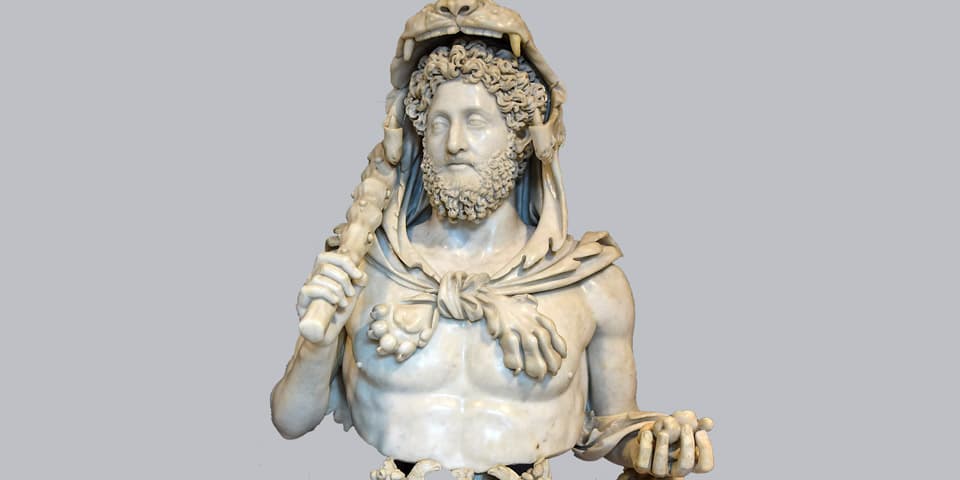Few events in Roman history are as bizarre and dramatic as the Praetorian Guard auction of 193 AD. Imagine an empire as vast and powerful as Rome being auctioned off to the highest bidder! This is exactly what happened when the elite soldiers of the Praetorian Guard decided to put the Roman Empire up for sale.
The Prelude: Chaos and Assassination
The year was 193 AD, a time of great turmoil for the Roman Empire. Emperor Commodus, whose rule had degenerated into a period of decadence and madness, was assassinated on the last day of 192 AD. His death marked the end of the Nerva-Antonine dynasty, and the empire was thrown into chaos.

Pertinax, a respected senator and former military commander, was quickly declared emperor by the Senate. Pertinax aimed to restore order and discipline to the empire, but his reforms and attempts to control the excesses of the Praetorian Guard—the elite soldiers tasked with protecting the emperor—made him unpopular with these powerful troops. After only 86 days on the throne, Pertinax was murdered by disgruntled Praetorians, setting the stage for one of the most extraordinary episodes in Roman history.
The Auction: A Throne to the Highest Bidder
With Pertinax dead, the Praetorian Guard found themselves without an emperor and, more importantly, without the bonuses they had come to expect upon a new emperor’s ascension. Seizing the opportunity, the Praetorians decided to auction off the throne to the highest bidder.
The auction occurred within the Praetorian camp, a fortified area in Rome where the Guard was stationed. Word of the auction spread quickly, attracting several wealthy and ambitious Romans. Among the bidders were Didius Julianus, a wealthy senator with dreams of grandeur, and Titus Flavius Sulpicianus, the father-in-law of the late Pertinax and the city prefect of Rome.

The Bidding War
As the auction began, the atmosphere was electric with anticipation. Titus Flavius Sulpicianus, already within the Praetorian camp, started the bidding, promising the Praetorians substantial rewards if they declared him emperor. Not to be outdone, Didius Julianus, who had arrived at the camp gates, shouted his bids over the wall.
A dramatic bidding war ensued, with each man attempting to outbid the other in a desperate bid for power. Sulpicianus offered a hefty sum, but Julianus, determined to secure the throne, made an astonishing promise: he would pay each Praetorian soldier 25,000 sesterces, an enormous sum far exceeding what Sulpicianus could offer.
The guards, motivated by greed, declared Julianus the new emperor. As news of the auction spread through Rome, many were shocked and outraged by the blatant corruption and the audacity of the Praetorian Guard. The Senate had little choice but to reluctantly confirm Julianus as emperor.
The Reign of Didius Julianus
Julianus’s reign was doomed from the start. His purchase of the throne had left him without the respect or loyalty of the Senate, the military, or the people. His efforts to stabilize his rule were met with widespread disdain. Julianus attempted to curry favor by distributing gifts and organizing games, but these gestures did little to win over a populace that saw him as an illegitimate ruler.
Meanwhile, several powerful generals were preparing to challenge Julianus across the empire. Among them were Septimius Severus, who commanded legions in Pannonia; Pescennius Niger, the governor of Syria; and Clodius Albinus, the governor of Britain. Each had their sights set on the imperial throne and possessed the military strength to back their claims.
The March of Septimius Severus
Septimius Severus proved to be the most formidable of Julianus’s rivals. As a seasoned military commander, Severus wasted no time marching his legions towards Rome. His disciplined and battle-hardened troops quickly gained the support of many who opposed Julianus’s corrupt rise to power.

As Severus advanced, Julianus tried in vain to muster a defense. He even attempted to negotiate with Severus, offering to share power, but his overtures were ignored. The Praetorian Guard, sensing Julianus’s inevitable fall, switched their allegiance to Severus, abandoning the man they had once proclaimed emperor.
The Fall of Julianus
Julianus’s situation became increasingly desperate with the Praetorian Guard deserting him and Severus’s forces closing in. On June 1, 193 AD, just over two months after purchasing the throne, Julianus was assassinated by a member of the Praetorian Guard. His death ended one of Roman history’s shortest and most ill-fated reigns.
The Senate, eager to align with the victor, quickly declared Severus the new emperor. Severus entered Rome unopposed and immediately set about consolidating his power. He dissolved the Praetorian Guard, replacing them with soldiers loyal to him, and executed those involved in the murder of Pertinax and the auction of the throne.

